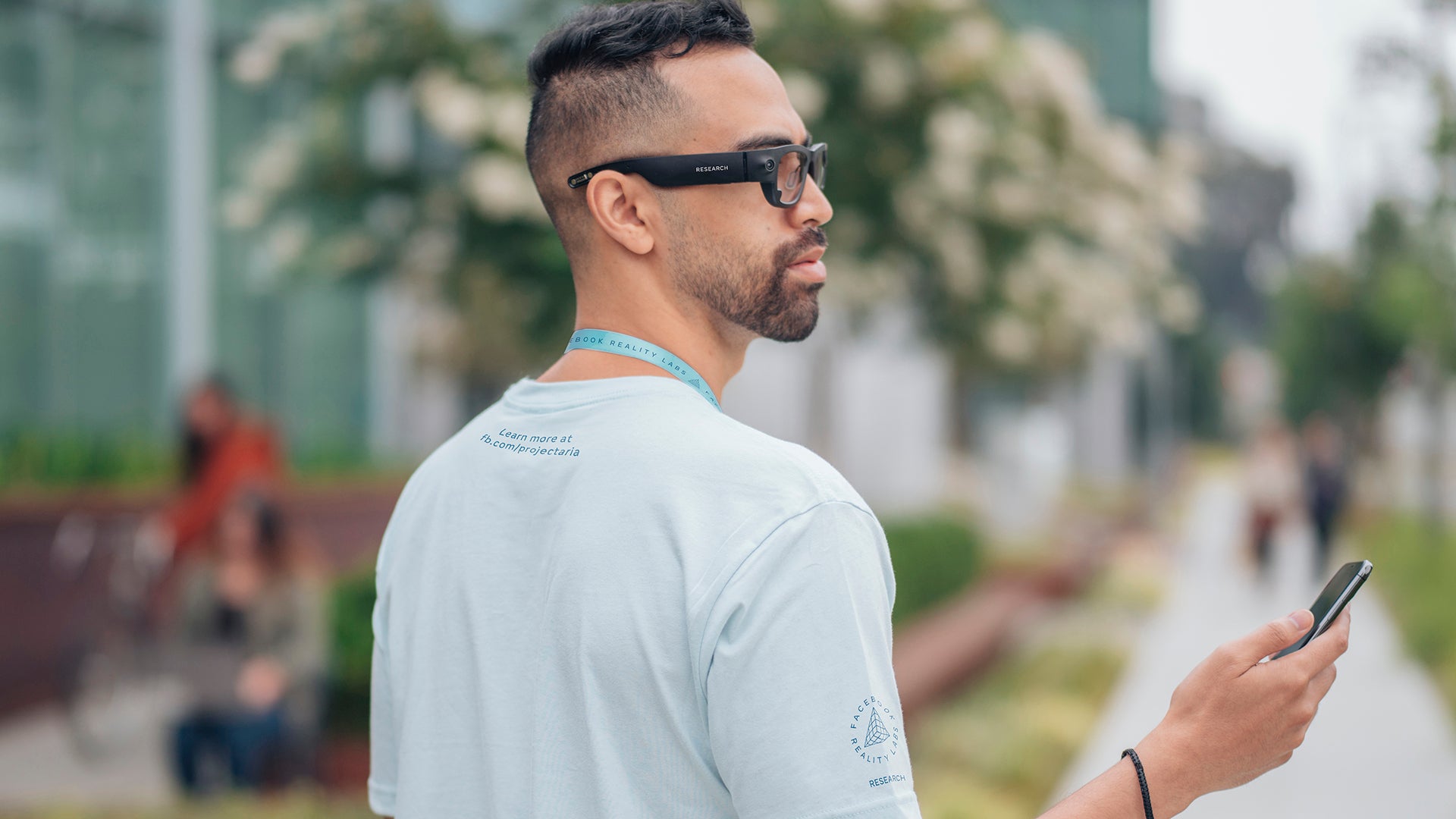Facebook reveals details of its AR glasses which could work by reading your mind
Facebook’s technology could read electrical signals sent through the hand to interface with the glasses

Your support helps us to tell the story
From reproductive rights to climate change to Big Tech, The Independent is on the ground when the story is developing. Whether it's investigating the financials of Elon Musk's pro-Trump PAC or producing our latest documentary, 'The A Word', which shines a light on the American women fighting for reproductive rights, we know how important it is to parse out the facts from the messaging.
At such a critical moment in US history, we need reporters on the ground. Your donation allows us to keep sending journalists to speak to both sides of the story.
The Independent is trusted by Americans across the entire political spectrum. And unlike many other quality news outlets, we choose not to lock Americans out of our reporting and analysis with paywalls. We believe quality journalism should be available to everyone, paid for by those who can afford it.
Your support makes all the difference.Facebook has revealed details of its upcoming smartglasses, as well as future projects for haptic gloves and wristbands that could control them.
“All-day wearable AR glasses require a new paradigm because they will be able to function in every situation you encounter in the course of a day”, the social media giant wrote in a blog post.
“They need to be able to do what you want them to do and tell you what you want to know when you want to know it, in much the same way that your own mind works — seamlessly sharing information and taking action when you want it, and not getting in your way otherwise.”
Facebook describes a user interface that is linked to a pair of augmented reality glasses and “a soft wristband”, which would be able to play a podcast with a “small movement of your finger”, or would automatically recommend a customer’s usual order when it detected them walking into a coffee shop.
It goes on to describe typing using a virtual screen and keyboard, and activating noise reduction technology built into the glasses using in-ear monitors to quieten the user’s surroundings.
Part of this technology has already been demonstrated by Facebook; the company’s head of virtual reality and augmented reality showed in May 2020 a vision of floating displays that can be moved and re-sized via gesture control, as well as the user typing on a keyboard with a virtual taskbar over it for shortcuts, including the Windows and Facebook icons.
Facebook also claims that the glasses could feed key statistics in a business meeting, guide users to destinations, translate signs, track cars. “The possibilities are vast and open-ended”, Facebook said.
In order to build these interfaces, Facebook is developing wrist-based electromyography (EMG) which would detect electric potential generated by muscle cells and translate that into actions.
“The signals through the wrist are so clear that EMG can detect finger motion of just a millimeter. That means input can be effortless — as effortless as clicking a virtual, always-available button — and ultimately it may even be possible to sense just the intention to move a finger”, Facebook claims.
Facebook will also use customer data to build “powerful AI models ... based on an understanding of you and your surroundings [with users presented] with the right set of choices” so that “the right thing may one day happen without you having to do anything at all”.
The artificial intelligence will learn from the users, and ask questions to improve its “understanding of you and your needs”, with direct feedback being “hugely valuable and will leapfrog systems that rely on traditional data collection and training.”
The company will finally leverage other soft, wearable electronics to develop more technologies worn on the wrists and hands that “will give us a much richer bi-directional path for communication”.
CEO Mark Zuckerberg recently spoke about his visions for the future of augmented and virtual reality tools, saying the company wants to “invest deeply to help shape what I think is going to be the next major computing platform”. He added that being able to interact virtually could also beneficially impact climate change.
″Obviously, there are going to keep on being cars and planes and all that. But the more that we can teleport around, not only are we personally eliminating commutes and stuff that’s kind of a drag for us individually, but I think that’s better for society and for the planet overall, too,” Mr Zuckerberg said.
Mr Zuckerberg also said that neural interfaces will eventually become vital to the development of augmented reality products, and may potentially be similar to Elon Musk’s Neuralink - the basic technology for which has been in development for some time.
Facebook is currently working on a collaboration with Ray-Bans for smart-glasses, which “will not be full AR” but will set the foundation for the developer ecosystem that will launch later this year.
As well as Facebook, Apple has been rumoured to be making augmented reality glasses for the past two years, as well as its own virtual reality headset, while Google purchased North, a company which develops smart glasses, in 2020 to “invest in our hardware efforts and ambient computing future.”

Join our commenting forum
Join thought-provoking conversations, follow other Independent readers and see their replies
Comments